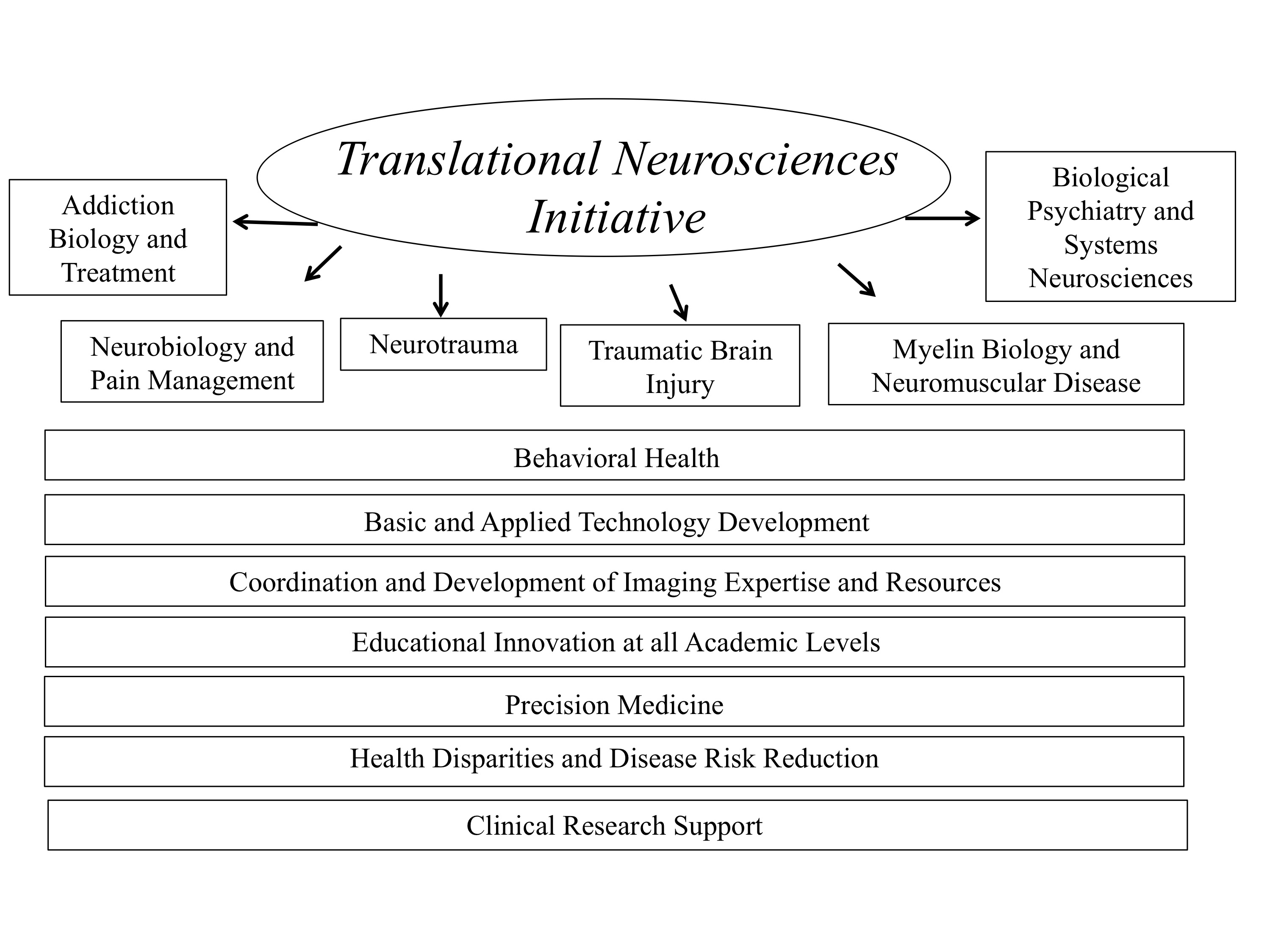Translational Neurosciences Initiative
Wayne State University has a rich history in the neurosciences that spans multiple departments, colleges, schools and centers/institutes across campus. Neurosciences at Wayne State University is represented by a strong biomedical imaging platform and intellectual expertise that touches upon behavioral health, clinical care, traumatic brain injury, neurodevelopment, gerontology, diagnostics and therapeutics. Neurosciences at Wayne State University also includes a number of research training components at the graduate and undergraduate level as well as significant partnerships with, regional, national and international institutions.
The first phase of a broad Translational Neurosciences Initiative (TNI) at Wayne State University was launched on January 1, 2017 with Dr. David Rosenberg (Chair of Department of Psychiatry & Behavioral Sciencs) as the inaugural Director. The TNI serves to coalesce neuroscience research efforts, brain & behavioral health activities and relevant enabling technologies across campus and with strategic partners to target themes and thrusts that will lead to development of broad programmatic-based funding and applied technologies for potential commercial development. Support provided for the first phase of TNI development includes ~10,000 sq. ft. of open and wet and dry lab space and office space in IBio as well as allocation of resources for faculty recruitment.
Dr. Jun Li (Neurological and neuromuscular diseases) recently joined us as the Scientific Director for the TNI and the Chair of the Department of Neurology. Dr. Tanja Jovanovic joined us in July 2018 as the David and Patricia Barron Post Traumatic Stress Disorder and Trauma Neurobiology Endowed Chair as part of the Translational Neurosciences Initiative. Recent recruits for the TNI also include Samuele Zililio Ph.D. (Socioeconomic stressors and learning), Carolyn Harris Ph.D (Neuroprosthetics) and Ana Daugherty, Ph.D. (Influence of metabolic and cardiovascular stress on neural cognitive deficits in aging).
Thematic platforms and enabling technology platforms for the TNI include the following.
- Addiction Biology and Treatment
- Bio-behavioral Health
- Basic and translational imaging modalities (e.g., MRI, PET, PET-CT)
- Development of new therapies against neurological disorders through cell- or viral vector- based delivery
- Integration of biological psychiatry with imaging, genetics, immunology of neuropathologies and systems neuroscience
- Myelin development, maintenance, demyelination and remyelination as mechanisms underlying peripheral and central nerve diseases (multiple sclerosis, motor neuron disease, autism, Parkinson's disease)
- Neurobiology and therapeutic management of pain
- Neurogenetics with a focus on focus on neural behavior, pain sensation and/or peripheral and central nerve diseases
- Traumatic Brain Injury

CONTACT INFORMATION:
David R. Rosenberg, M.D.
Professor & Chair
Department of Psychiatry & Behavioral Neurosciences
Director of the Translational Neurosciences Initiative
Miriam L. Hamburger Endowed Chair of Child Psychiatry
Psychiatrist-in-Chief, Detroit Medical Center Director,
Child & Adolescent Neuropsychiatric Research Director,
Obsessive Compulsive Disorder Clinical Research Program
Director, Child and Adolescent Research Division
Wayne State University
drosen@med.wayne.edu
(313) 577-9000